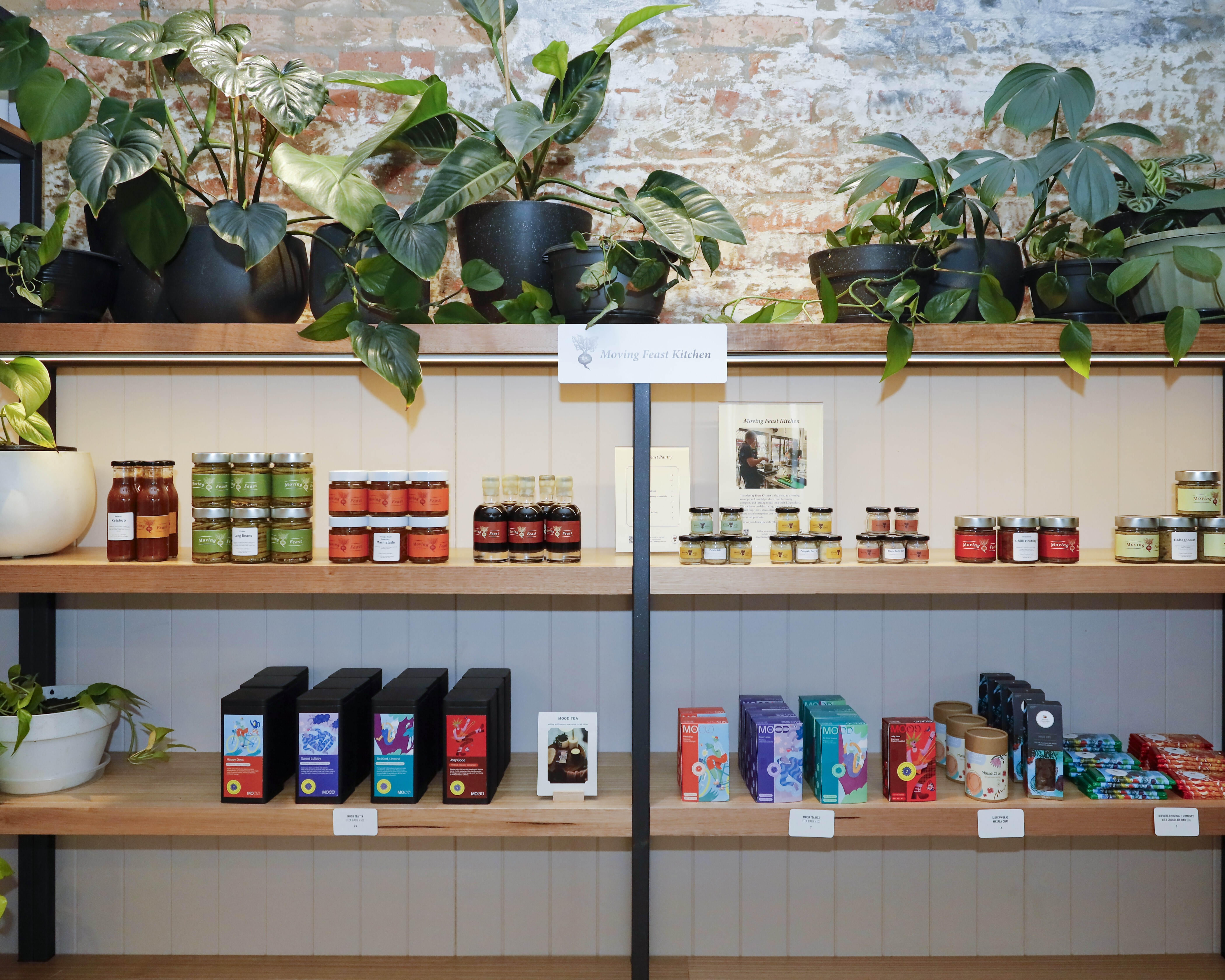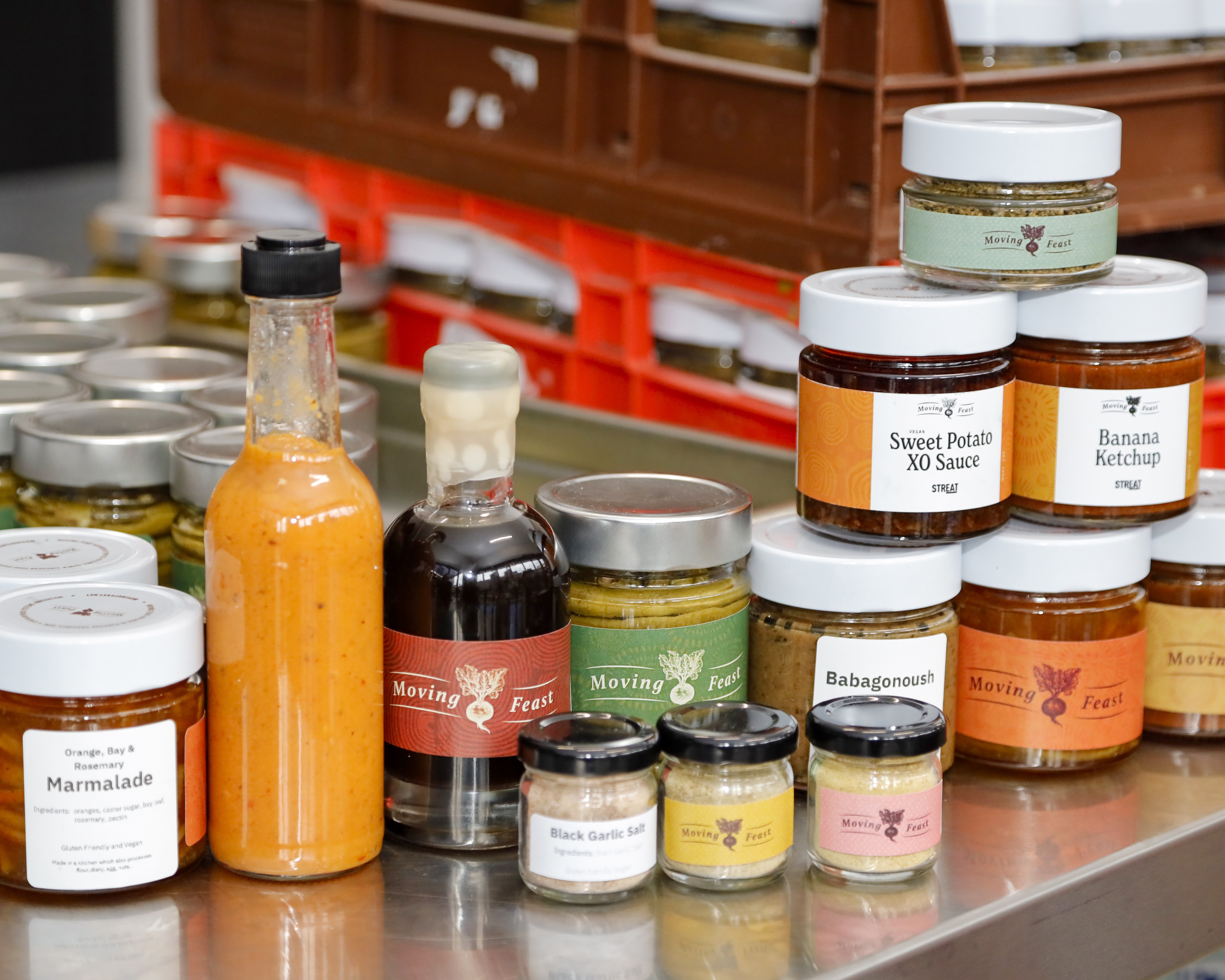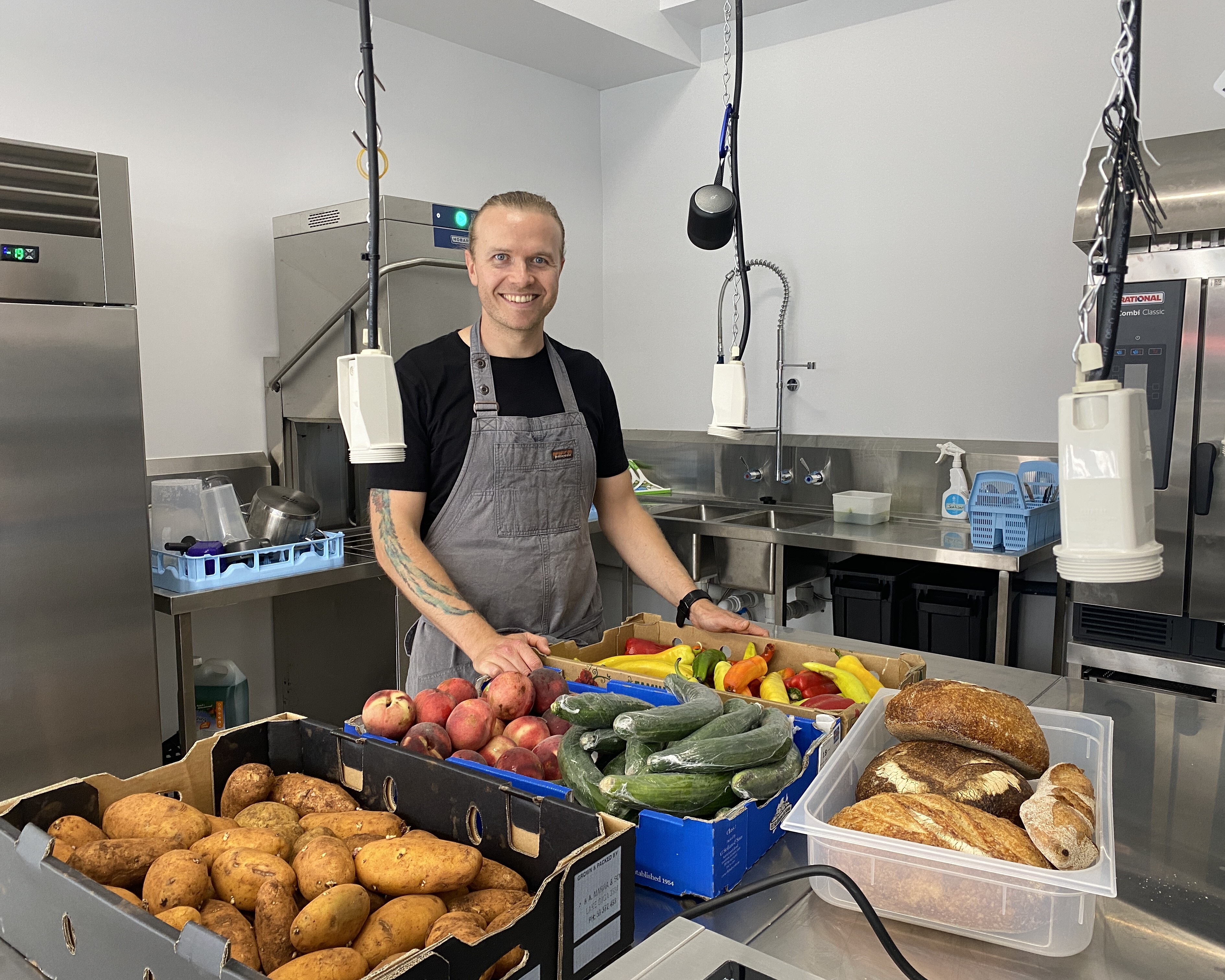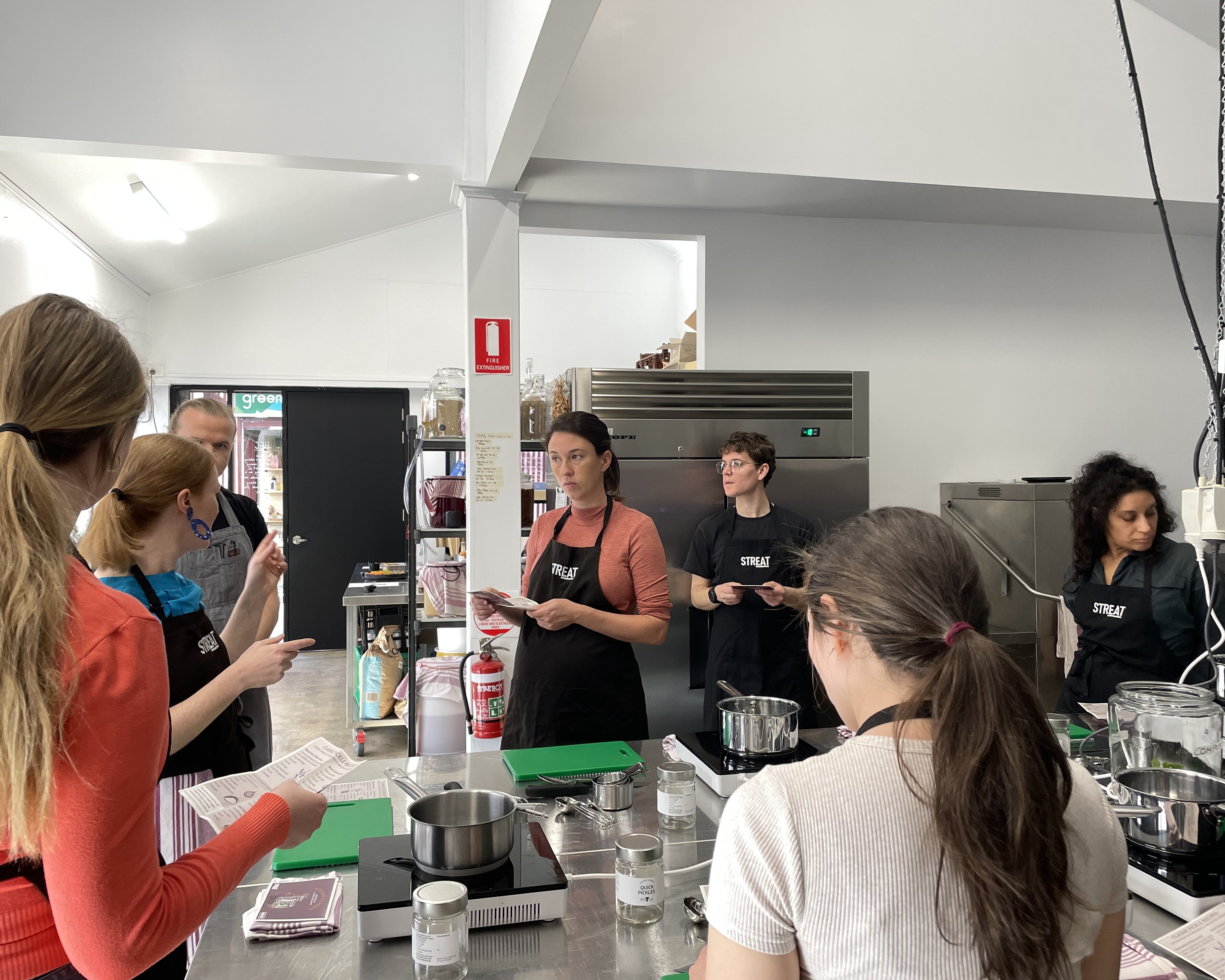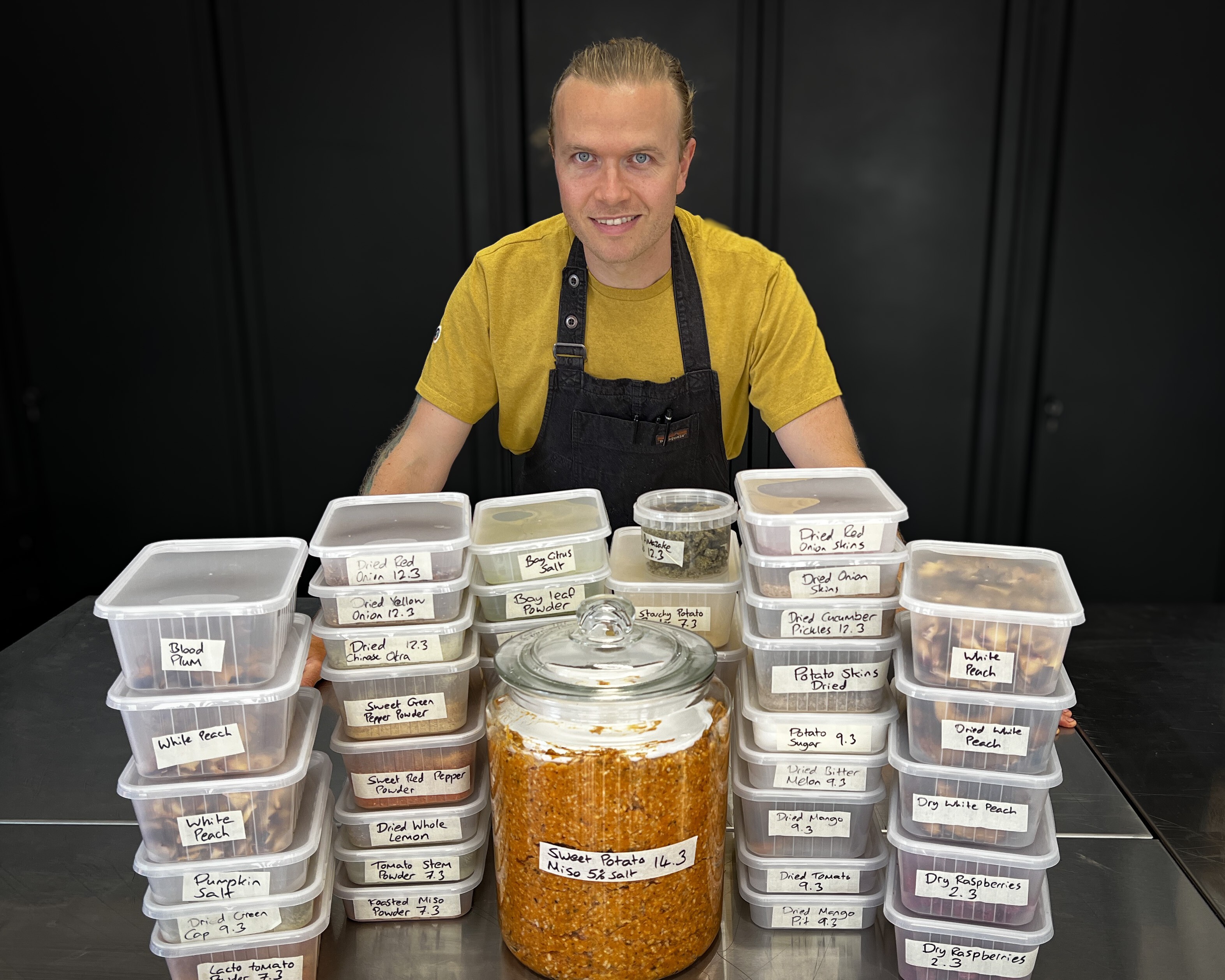Funded project - STREAT
The Crowd Sauce project tackled food waste by transforming overripe, unsold produce and packaging it into valuable products. This innovative education and circular economy initiative demonstrates practical waste diversion strategies whilst providing knowledge-sharing opportunities.
Background
The Crowd Sauce project addressed the environmental challenge of over 960 tonnes of organic waste generated annually at Melbourne's Queen Victoria Market (QVM). Currently, most of this waste is either composted or sent offsite, missing valuable opportunities for reuse. The project diverted organic waste from this stream, transforming it into retail and edible products, reducing environmental impact while creating sustainable models and opportunities.
The initiative also offered educational workshops and an e-learning platform to share findings with social enterprises, small businesses, and aspiring entrepreneurs. This knowledge exchange promoted sustainable practices, innovation, and better waste management. Through its circular economy model, Crowd Sauce fostered both environmental sustainability and community engagement. Ultimately, the initiative demonstrated how waste can be repurposed as a valuable resource, inspiring entrepreneurial growth while benefiting local businesses and the broader community.
STREAT was uniquely positioned to lead the Crowd Sauce project due to its 15 years of experience as a pioneering social enterprise in food systems, job pathways, and circular environmental practices. Building on the success of their Open Sauce project, which transformed food waste into long-shelf-life products, they then took the next step by elevating rescued market food to a higher value. This expertise was complemented by strong partnerships with Cultivating Community and MAKE Studios, both leaders in waste auditing and behaviour change initiatives. Together, they combined deep knowledge of sustainable food practices with a proven track record in creating meaningful social impact, making them the ideal leaders to tackle this complex challenge and drive positive change in waste management and food systems innovation.
Stages
| 31/10/2023 | Develop project, communications plans and Measurement and Evaluation, finalise budgets and provide project information to CEBIC. |
| 01/05/2024 | Evidence of 3 x workshops delivered with attendee responses tracked. Waste Audit conducted. Divert waste - test, trial and write recipes for long shelf-life products. |
| 01/11/2024 | 6 workshops to be delivered and 2 e-learns available to public. Evidence of new products in retail pantry and online. |
| 15/12/2024 | Final evaluation and expenditure submitted. |
Outcomes - what worked?
The waste audit uncovered a consistent oversupply of produce at QVM, providing an opportunity to rescue and repurpose food that would otherwise go to waste. This surplus was turned into a variety of pantry products, significantly contributing to the circular economy by minimizing waste and creating value-added products. Consumer support for circular retail practices was strong, highlighting the community's commitment to sustainability. Moreover, the Moving Feast Kitchen became a key educational hub, engaging market customers, government, universities, and corporates in understanding and adopting circular economy principles.
The Moving Feast kitchen at the QVM market has not only become a vital part of the operations but has evolved into a central hub for education, awareness, and advocacy around food waste and the circular economy concepts. This transformation has led to a notable increase in the number of individuals and groups attending training sessions, tours, education tastings and workshops, reinforcing the space's role as an influential educational tool. As part of the market's official tours, visitors are now guided through the space to learn about the innovative work being done to divert food waste. These tours are designed to illustrate the principles of food circularity, allowing market customers to see firsthand how food that would typically be discarded is repurposed into long shelf-life products. The kitchen has also attracted attention from a variety of sectors including government, universities and corporates.
Many participants of kitchen workshops, events or tastings expressed a huge increase in their understanding of sustainable and innovative practices, specifically in the context of food waste and circular concepts. Many noted that before engaging with the kitchen they had limited knowledge and how it could be applied to everyday life. The kitchen provided a space to not only talk about how to apply circular economy principles in a business setting but also in an individual's day to day life.
Because of the project, there were 22 partnerships and/or collaborations. These included Melbourne University, RMIT, QVM stall holders, Cultivating Community, MAKE Studios, Melbourne City Council & Vic Gov, new hospitality businesses as customers, wholesale customers for the Circular Education Hub, and various makers. These partnerships have created customers for the project, workshops to increase awareness of circularity, and education partnerships for future projects at the Moving Feast Kitchen.
The QVM site is a hub for tourists and locals - the market attracts over 8 million visitors annually, making it an ideal location for educating the public about circular economy practices. Through workshops and classes, the project has inspired and educated participants, both locals and tourists, about sustainable practices in their personal and professional lives.
The project diverted 2.54 tonnes of food waste from landfill, which resulted in 1.9 tonnes of CO2-e emissions reduced or avoided per annum. From the waste audit, the project mapped a potential for 225 tonnes of food waste that could be diverted each year. The project developed 59 products from waste diverted at the market, all tested, trialled and either sold in jars for retail production, as items in the cafe, or sold in bulk to hospitality partners.
The project also led to the employment of an additional 17 full time and 35 casual and part time staff members.
Challenges
Heritage overlay onsite for build of kitchen
There was limited to no information on the site when STREAT was in negotiation with QVM on the build of the production kitchen, together with heritage overlay restrictions. This contributed to major delays in building the kitchen.
Processing capacity on site
Due to the space provided for processing in the kitchen, there was a large discrepancy between how much food waste could be processed onsite versus the amount of oversupplied food that could be rescued.
Relationships and communication
Gathering data from QVM was challenging which led to delays in starting waste audit. Relationships were key to diverting the overripe or undersold produce from market stall holders.
Insights to share with other businesses
STREAT's advice is to conduct thorough research before starting to plan the project – funding timeframes often don't allow for full processes and research to be conducted when working on innovation projects. Understand processes and systems that are (or in most cases are not) in place before starting. Develop scalable solutions - start with a pilot concept to test the viability of the project before scaling. To innovate you need to be highly flexible and adaptable as the project progresses, therefore when setting targets, be realistic (allow for stretch targets but keep them realistic) and then through the project try and exceed them.
What's next?
The next phase of this project (subject to funding) will be to find scaled solutions for the mapped waste. One promising avenue is expanding the project into food relief - where large quantities of diverted produce (with less processing - pickling, dehydrating etc) would be possible. These discussions are being explored with Melbourne and RMIT universities who have identified food security issues within their student cohorts.
The next steps involve building on the strong relationships established with various stakeholders. The project plans to explore the concept of food relief within the Moving Feast Kitchen, using rescued produce to address food security issues. This initiative will not only tackle food waste but also support communities in need. Additionally, the site has potential as a central hub for circular innovation. The project will collaborate with education partners to showcase the possibilities of waste diversion, demonstrating scalable solutions and inspiring further action in the circular economy.
From the grantee
"The planet is facing a 'meta-crisis' of interconnected 'wicked' challenges. Each of these challenges are too big to be solved by individuals, instead requiring collectives of enterprises, governments, universities and corporates creating 'ecosystems of solutions'. Excitingly, this cross-pollination is starting to happen."
